Fare vs. Fair
What is the difference?
English is full of words that sound the same, but have different meanings. The words fare and fair are one example of two words that are said in exactly the same way, but mean totally different things, so it's important to know the difference.
How can you know when to use each one? Fare most commonly refers to the cost of a ticket for public transportation or another form of transportation. Fair, on the other hand, means that something is right or according to the rules. It can also mean a light color, usually when talking about a person's hair or skin. But both words have several more meanings a well. Let's go over some of them.
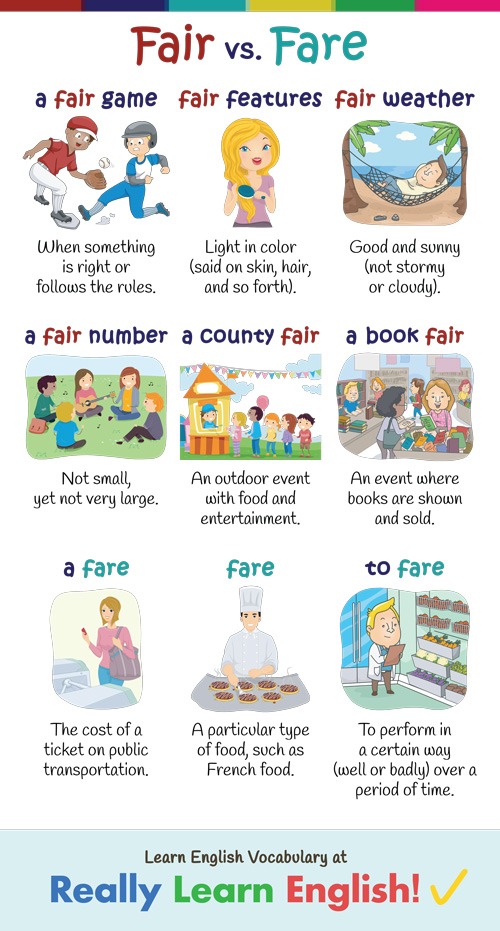
Click Here for Step-by-Step Rules, Stories and Exercises to Practice All English Tenses
Fare
The word fare is normally a noun, and it has two potential meanings when used in this way. The first meaning of fare is the cost of a ticket on public transportation. The amount of money that you have to pay to ride the bus is called the fare.

The second meaning of the word fare is a particular type of food. Fare can be used in this way to describe a certain type of food, such as French food, which can also be described as French fare. This use of the word is not as common.

Fare can also be used as a verb. When fare is used as a verb, it means to perform in a certain way over a period of time. If someone is handling a stressful situation badly, you could say that they are not faring well.
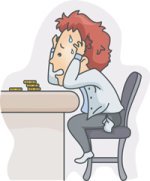
Examples:
- Since I only had $1, I could not afford the fare
to ride the bus downtown, so I stayed home instead.
(I couldn't afford the price of a bus ticket because I only had $1).

- Grandma is faring well since
her operation last month.
(Grandma is healthy and improving since her operation).

- Their favorite part of their trip to Thailand was getting
to trying the local fare. (Their favorite
part of the trip was trying Thai food).

Fair
The word fair, although it sounds the same, means some very different things than its homonym, fare. Usually, fair is used as an adjective, meaning that it describes a noun in some way. Fair is also a noun itself at times though!
Fair is most often used as an adjective, and means that something is right, or follows the rules. When someone cheats at a game, they have made it no longer fair for the other players.
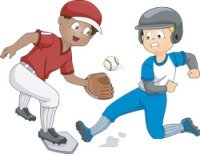
Fair as an adjective can also mean that something is light in color. A woman with pale skin and blonde hair can be described as having fair features.

It can also mean good, and it often used to describe the weather. A sunny day with no wind is fair weather.

You can use fair to say that something is not small, yet not extremely large. For example, you can that someone has a fair number of friends.
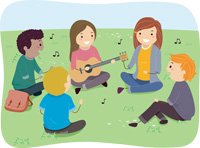
Fairly is another form of the word fair. It is an adverb. It is used to describe size, amount, or likelihood, and means that there is some of something, but not a lot. When it is likely that you will go to a party, you can say that you are fairly sure that you will attend.

As a noun, a fair usually means an event, typically held outdoors, with food and animals and entertainment of some kind available to enjoy.
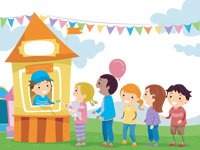
It might also refer to a more serious event in which people with a common business or interest come together, such as a job fair, where people come to meet potential employers.
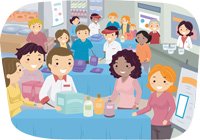
Examples:
- The baseball umpire declared it a fair
ball, so the game continued.
(The baseball umpire decided that the ball was within the bounds of the field, which it must be according to the rules, so the game continued).

- There was a fair chance that
he would order a hamburger at the restaurant.
(It was likely, but not certain, that he would order a hamburger at the restaurant).
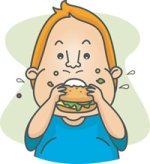
- He plans to ride the roller coaster at the state fair
until he becomes sick.
(He plans to ride the roller coaster at the annual event with rides and food, so many times that he gets sick).
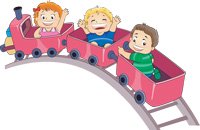
- It was stormy, so they decided to wait for a fairer
day to take the boat out on the water.
(It was stormy, so they would wait for a day with better weather to take the boat out).

- Her fair skin made it easy for
her to get a sunburn if she didn't wear any sunscreen.
(Her very light skin burned easily if she did not wear sunscreen to protect it).

- We still had a fairly large
amount of food left over from our barbecue on
Friday.
(We still had a somewhat large amount of food left over from the barbecue).
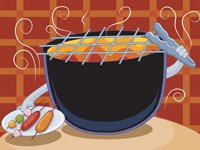
Tips
Fair and fair are an example of homonyms, or words that sound exactly the same, but don't mean the same thing. Homonyms may or may not be spelled the same way, but they always sound alike. English is full of homonyms and they can be a little tricky, but at least you're now on your way to knowing the difference between one pair of them!

A Story to Practice Fare vs. Fair
James wakes up and looks out his bedroom window. He sees that the sun is shining and there is not a cloud in the sky. A fair day to take a walk into town, he thinks to himself.
James walks out the door and heads to town. On his way there he passes a coffee shop. Inside the shop he sees a girl with hair so fair that it looks almost white. She waves at him and comes outside. It is April, his friend from school.
She tells him that she is going to the county fair and that he should come along. James loves all of the games and rides at the fair, so he says that he would love to go. James and April start walking, but the fair is all the way in the next town and they are getting tired.
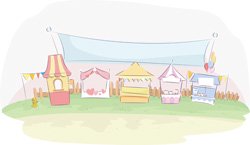
So the two decide to take the bus. The fare to ride is $2. April says that she will pay for James because her parents gave her some money for the day. James thanks her and says that he will pay for her ticket to go on one of the rides. That sounds like a fair deal to April and so they get on the bus and go to the next town. Both of them are in a fair mood.
When they get there, James and April see that there was an accident on
the street outside. A car crashed into a flag pole. The driver is in fair
condition, but his car did not fare so well. It is
completely destroyed.
James and April feel bad for the man. It is not fair
that they are having such a nice day while he is having
such a bad one. They decide to win the man a prize to make him feel
better. James tries a game where you have to throw a baseball into a
small hole from far away. He has played baseball for a fair
number of years, so he has no problem winning a prize. They give it to
the man and he says he feels much better.
After all of that, James and April are feeling hungry, so they walk over to the food area. There are different fares from all around the world to choose from. Mexican, Chinese, Italian, and many others. They eat lunch and head home. Both agree that they had a fair amount of fun that day.
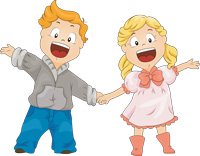
Quiz
Answer the following 10 questions and then check your answers. Each question is worth 10 points.
Part 1:
- Which of the following is a correct definition of fare?
- A type of food
- A type of clothing
- To be sad
- To be ugly
- Which of the following is a correct definition of fair?
- Too much
- Dark colored
- None at all
- Some, but not too much
- Which sentence is written correctly?
- I will go to the fare this weekend.
- His skin is fare.
- The new bus fair is way too much.
- There was a fair amount of water left in the glass.
- Which of the following is written incorrectly?
- My odds of winning the prize are fair.
- My favorite part of vacation was trying the local fair in Jamaica.
- I did not fare well on my homework, because it was too hard.
- We are going to the fair today.
Part 2:
- I am going to the career _________ to look for a new job.
- fair
- fare
- faring
- fairly
- How are you _________ at your new job?
- fair
- faring
- fare
- fared
- I don't think it is _________ for you to get a bigger piece than me.
- fairly
- fared
- fair
- fare
- There is a _________ amount of snow on the ground this morning.
- fare
- fared
- fair
- fairly
- 5. What is the new _________ to ride the train?
- fair
- fare
- faring
- fared
- It was a _________ day for flying kites.
- fairly
- fared
- fare
- fair
Answer Key
Part 1: 1. A | 2. D | 3. D | 4. B
Part 2: 1. A | 2. B | 3. C | 4. C | 5. B | 6. D
Get Updates, Special Offers, and English Resources
Download your FREE GIFT (the first two chapters of
English Short Stories Book and Workbook)
as soon as you join!

By submitting your email, you consent to receiving updates and newsletters from us and to the sharing of your personal data with third parties for the purposes of sending you communications. We will not spam you. You can unsubscribe at any time. For more information, please see our privacy policy.
Return
from Fare vs. Fair to
Confusing Words and Some Common Mistakes in
English





